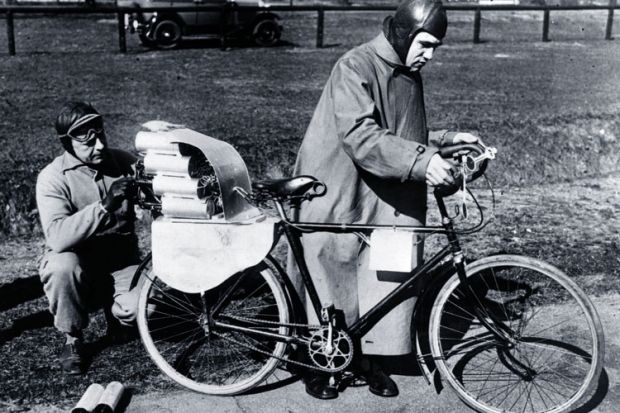Source: Getty
Not so fast: the proposal for more flexible pay bargaining was vetoed
University staff should be allowed to negotiate extra pay locally on top of any increases agreed nationally, a senior trade union leader has argued.
Randy Banks, president of the University of Essex’s University and College Union branch, called on the union’s annual congress to back a more flexible system of pay bargaining, in which individual union branches could seek to gain additional pay, holiday or bonuses as a means of “rewarding all staff equally for the success of their institution”.
In a motion backed by Essex’s UCU branch, Mr Banks said the current pay bargaining structure was failing many staff because “it sets pay levels at the maximum that can be afforded by financially weak institutions”.
Staff at “institutions who can afford to pay more” were prevented from receiving extra cash by the set-up, he said.
While the idea of locally negotiated pay deals has been suggested by university leaders, the prospect has generally been rejected by union heads, who believe that it would lead to more performance-related pay and lower increases than those achieved by collective bargaining.
However, speaking to Times Higher Education, Mr Banks said that his model would give staff the best of both systems: preserving a national pay spine but allowing financially successful institutions to top up pay for all their staff, rather than concentrating rewards in the hands of senior managers.
“We have followed the same strategy for many years, and it has proved to be a signal failure,” he said. “We achieved the best we could in the circumstances, but the settlement for this year and next is a long way from what we wanted.”
Having more flexible deals locally would lead to a “race to the top, not the bottom” as individual branches could point to enhanced deals available at other institutions, he added.
However, Mr Banks’ motion was rejected by union delegates by an overwhelming show of hands.
Jane Hardy, a delegate from the University of Hertfordshire, called the motion “dangerous and disingenuous” as it “purports to commit to national bargaining when it is the very opposite of it”.
“There would be vice-chancellors salivating at the prospect of this,” she said. “We do not want a system where staff are rewarded for the success of their institutions – there should not be a situation where it is the survival of the fittest.”
Register to continue
Why register?
- Registration is free and only takes a moment
- Once registered, you can read 3 articles a month
- Sign up for our newsletter
Subscribe
Or subscribe for unlimited access to:
- Unlimited access to news, views, insights & reviews
- Digital editions
- Digital access to THE’s university and college rankings analysis
Already registered or a current subscriber?





